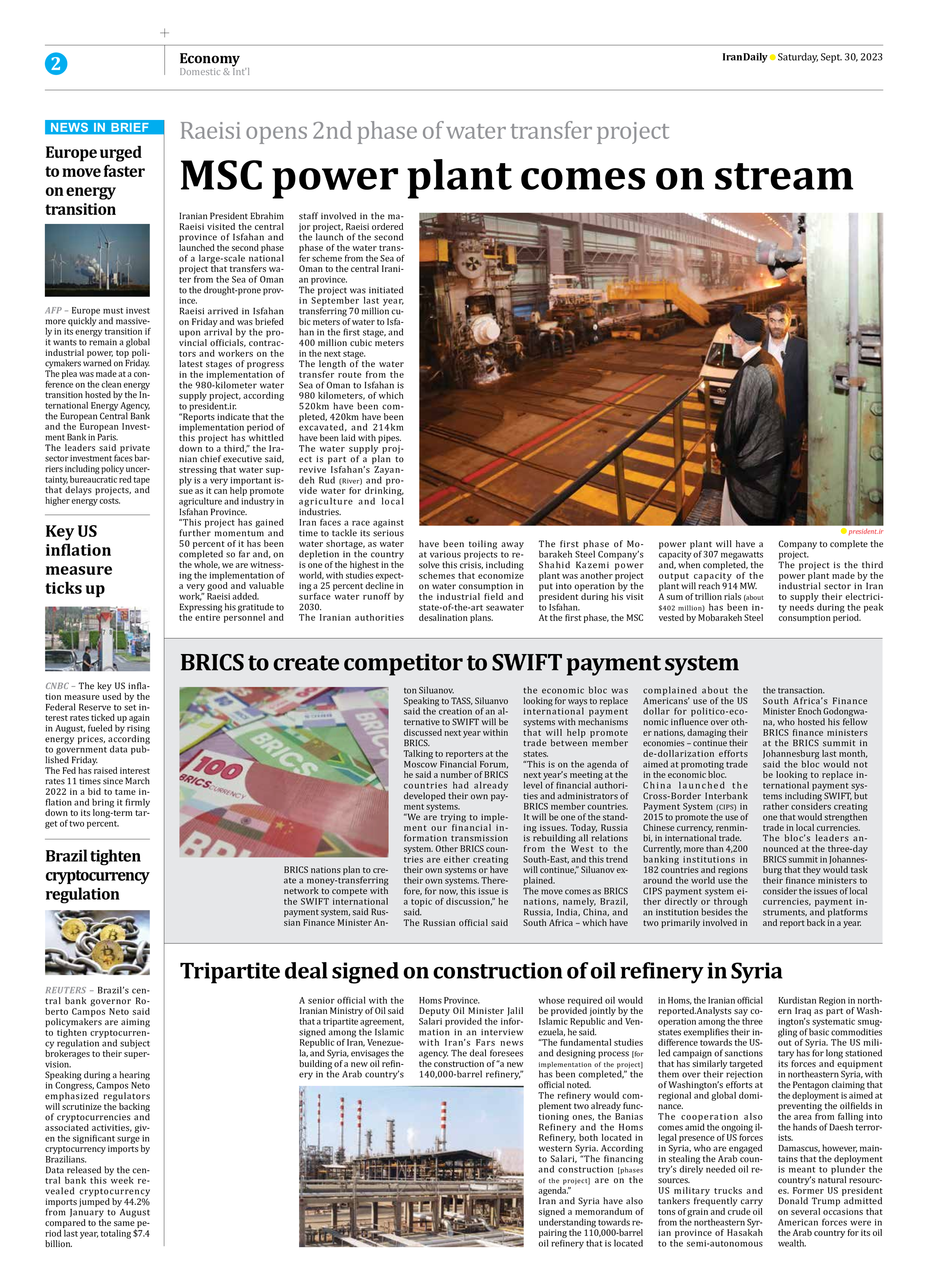
BRICS to create competitor to SWIFT payment system
BRICS nations plan to create a money-transferring network to compete with the SWIFT international payment system, said Russian Finance Minister Anton Siluanov.
Speaking to TASS, Siluanvo said the creation of an alternative to SWIFT will be discussed next year within BRICS.
Talking to reporters at the Moscow Financial Forum, he said a number of BRICS countries had already developed their own payment systems.
“We are trying to implement our financial information transmission system. Other BRICS countries are either creating their own systems or have their own systems. Therefore, for now, this issue is a topic of discussion,” he said.
The Russian official said the economic bloc was looking for ways to replace international payment systems with mechanisms that will help promote trade between member states.
“This is on the agenda of next year’s meeting at the level of financial authorities and administrators of BRICS member countries. It will be one of the standing issues. Today, Russia is rebuilding all relations from the West to the South-East, and this trend will continue,” Siluanov explained.
The move comes as BRICS nations, namely, Brazil, Russia, India, China, and South Africa – which have complained about the Americans’ use of the US dollar for politico-economic influence over other nations, damaging their economies – continue their de-dollarization efforts aimed at promoting trade in the economic bloc.
China launched the Cross-Border Interbank Payment System (CIPS) in 2015 to promote the use of Chinese currency, renminbi, in international trade.
Currently, more than 4,200 banking institutions in 182 countries and regions around the world use the CIPS payment system either directly or through an institution besides the two primarily involved in the transaction.
South Africa’s Finance Minister Enoch Godongwana, who hosted his fellow BRICS finance ministers at the BRICS summit in Johannesburg last month, said the bloc would not be looking to replace international payment systems including SWIFT, but rather considers creating one that would strengthen trade in local currencies.
The bloc’s leaders announced at the three-day BRICS summit in Johannesburg that they would task their finance ministers to consider the issues of local currencies, payment instruments, and platforms and report back in a year.







